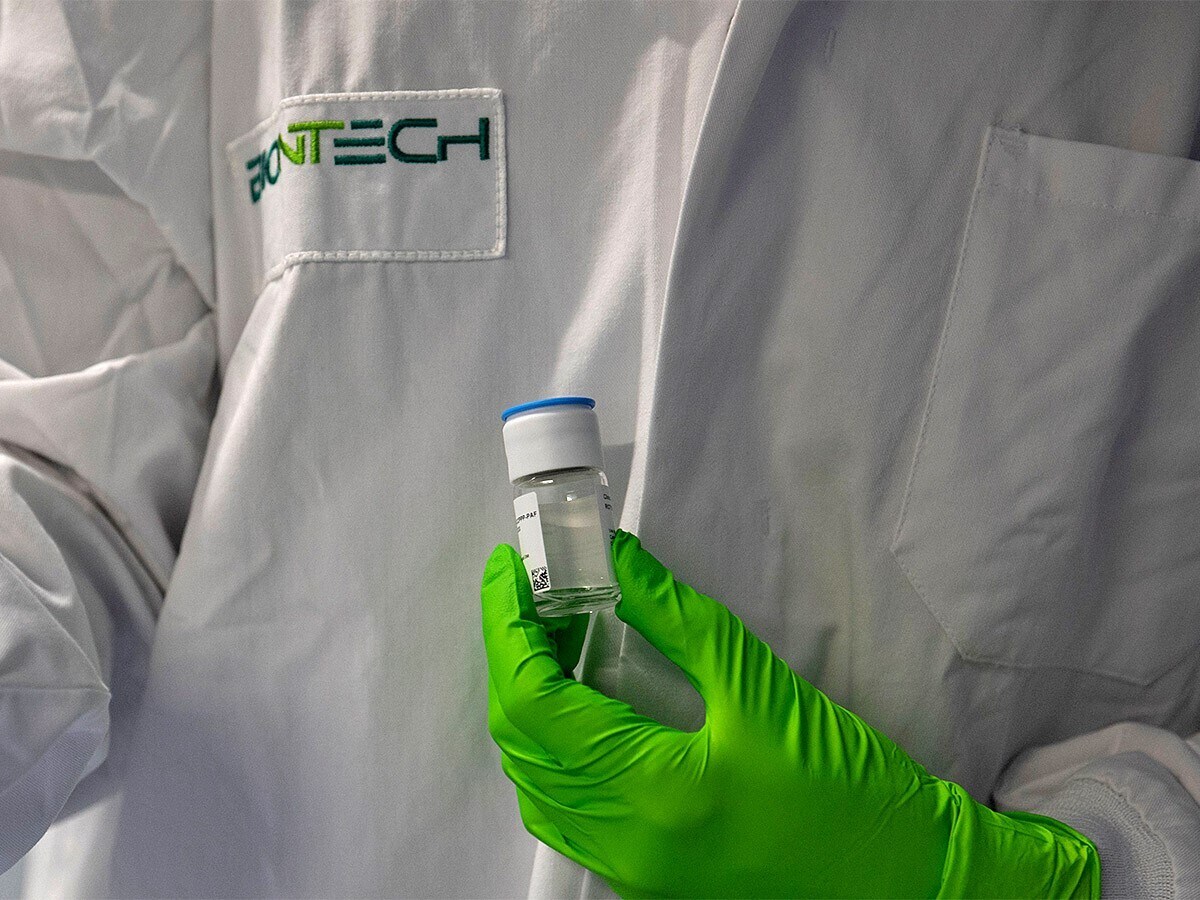BioNTech’s full-year 2022 earnings show revenue slumped as Covid-19 vaccine demand waned, while earnings fell year-over-year for Q4. However, a new generation of mRNA cancer drugs could revive its share price in future.
- BioNTech Q4 EPS falls 24% year-over-year.
- Biotech firms BioNTech, Pfizer and Moderna pin hopes on cancer drug pipeline.
- Global X Genomics & Biotechnology ETF offers exposure to BioNTech stock.
The BioNTech [BNTX] share price dipped over 6% on Monday morning, after the German biotech company’s fourth quarter (Q4) and full year 2022 earnings revealed that demand for its Covid-19 vaccines is shrinking.
Despite a sober forecast for the vaccines, BioNTech’s profit and revenue beat market expectations. Nevertheless, the company’s results represent a sharp fall from year-ago figures. Diluted EPS came in at €9.26 per share, down 24% from €12.18 per share during the year-ago quarter. However, the figure beat the FactSet analyst consensus of an EPS of €7.78 by 19%.
Revenues for Q4 slid 22.7% year-over-year to €4.3bn from €5.5bn, but remained 16.2% ahead of the €3.7bn predicted by FactSet analysts.
BioNTech’s share price closed down 3.6% following the release of its earnings on Monday, bringing it down 17.7% year-to-date and down 5% in the past month.
Revenue tumbles, costs spike
BioNTech reported that for 2022 its total revenues tumbled to €17.3bn, a fall of 8.8% from €19bn the previous year.
Looking ahead, BioNTech predicted that for 2023, Covid vaccine-related revenues will fall to just €5bn, significantly down from the segment’s revenues of €17bn in 2022 and €19bn in 2021, suggesting that income from its joint venture with US biopharmaceutical company Pfizer [PFE] will no longer be a driver of the company’s revenues.
Additionally, the figure came in well below analyst forecasts for Covid vaccine revenues of almost €9bn in 2023, according to data from Bloomberg.
However, the company suggested new Covid variants could continue to shore up demand. “We made significant progress in 2022 by advancing our pipeline and launching the world’s first Omicron BA.4/BA.5 adapted bivalent Covid-19 vaccine,” said Ugur Sahin, co-founder and CEO of BioNTech, in a statement.
The company said it was focusing on seeking approval for more cancer treatments. It is engaged in 24 ongoing clinical trials to help grow its pipeline of oncology drugs. “Our mid-term goal is to seek approval for multiple oncology products in cancer indications with high unmet medical need,” said Sahin.
BioNTech’s results also indicated research and development (R&D) costs had spiralled upwards. R&D expenses came in at €509.8m for Q4, up 87.8% year-over-year from €271.5m. For the full year, R&D expenses were €1.5bn, a 58% jump up from €949.2m.
The rise was pegged to costs relating to the development of BioNTech and Pfizer’s Omicron-adapted jabs, as well as a rising staff headcount.
Biotech companies pivot to cancer treatments
BioNTech is not the only big biotech name offering a gloomy outlook.
In January, Pfizer said that it anticipated that Covid vaccine sales will sink by 64% this year, with sales of its Covid antiviral drug Paxlovid potentially due to drop by 58%.
Together BioNTech and Pfizer developed one of the first globally available Covid vaccines using pioneering messenger RNA (mRNA) technology. Now BioNTech plans to use mRNA for treatments of other diseases including cancer, which it hopes could offer more targeted, personalised responses to the disease. A UK trial involving 10,000 patients to the year 2030 will explore this possibility, in a deal between BioNTech and the UK government.
Pfizer and peer Moderna [MRNA] are also looking to their cancer treatment pipelines to help generate future profits.
Elsewhere in the biotech sector, cell therapy company Legend Biotech [LEGN] is expected to post its next earnings on 31 March. Last week, analysts at RBC Capital initiated their coverage of the stock with an ‘outperform’ rating.
Funds in focus: Global X Genomics & Biotechnology ETF
Funds offering exposure to the biotechnology theme include the Global X Genomics & Biotechnology ETF [GNOM]. BioNTech is the 10th-largest holding with a 4.06% weighting as of 24 March.
The fund is down 5.5% year-to-date and down 5.4% in the past month.
Investors seeking exposure to BioNTech stock could also look at the iShares Biotechnology ETF [IBB], where the company has a 2.33% weighting. Moderna stock has a 4.91% weighting in the fund.
The fund is down 4% year-to-date and down 0.8% in the past month.
Out of 15 analysts providing 12-month price targets to Refinitiv, a median estimate of $194.69 suggests 57.5% potential upside from BioNTech’s recent closing price of $123.60.
Disclaimer Past performance is not a reliable indicator of future results.
CMC Markets is an execution-only service provider. The material (whether or not it states any opinions) is for general information purposes only, and does not take into account your personal circumstances or objectives. Nothing in this material is (or should be considered to be) financial, investment or other advice on which reliance should be placed. No opinion given in the material constitutes a recommendation by CMC Markets or the author that any particular investment, security, transaction or investment strategy is suitable for any specific person.
The material has not been prepared in accordance with legal requirements designed to promote the independence of investment research. Although we are not specifically prevented from dealing before providing this material, we do not seek to take advantage of the material prior to its dissemination.
CMC Markets does not endorse or offer opinion on the trading strategies used by the author. Their trading strategies do not guarantee any return and CMC Markets shall not be held responsible for any loss that you may incur, either directly or indirectly, arising from any investment based on any information contained herein.
*Tax treatment depends on individual circumstances and can change or may differ in a jurisdiction other than the UK.
Continue reading for FREE
- Includes free newsletter updates, unsubscribe anytime. Privacy policy





